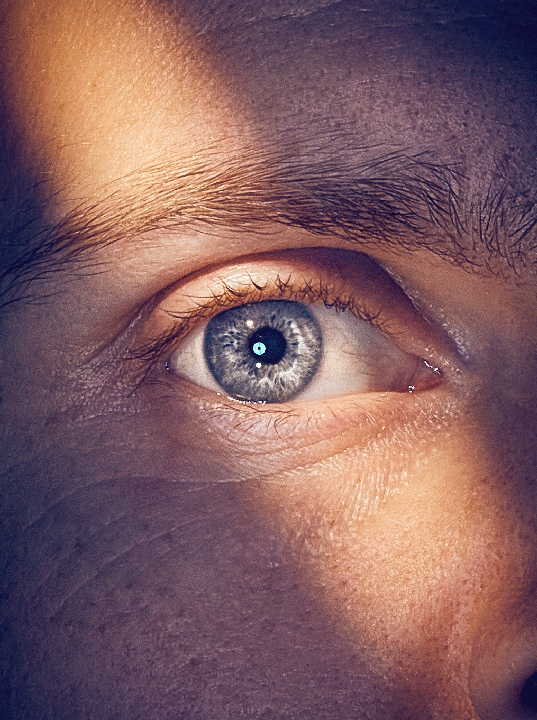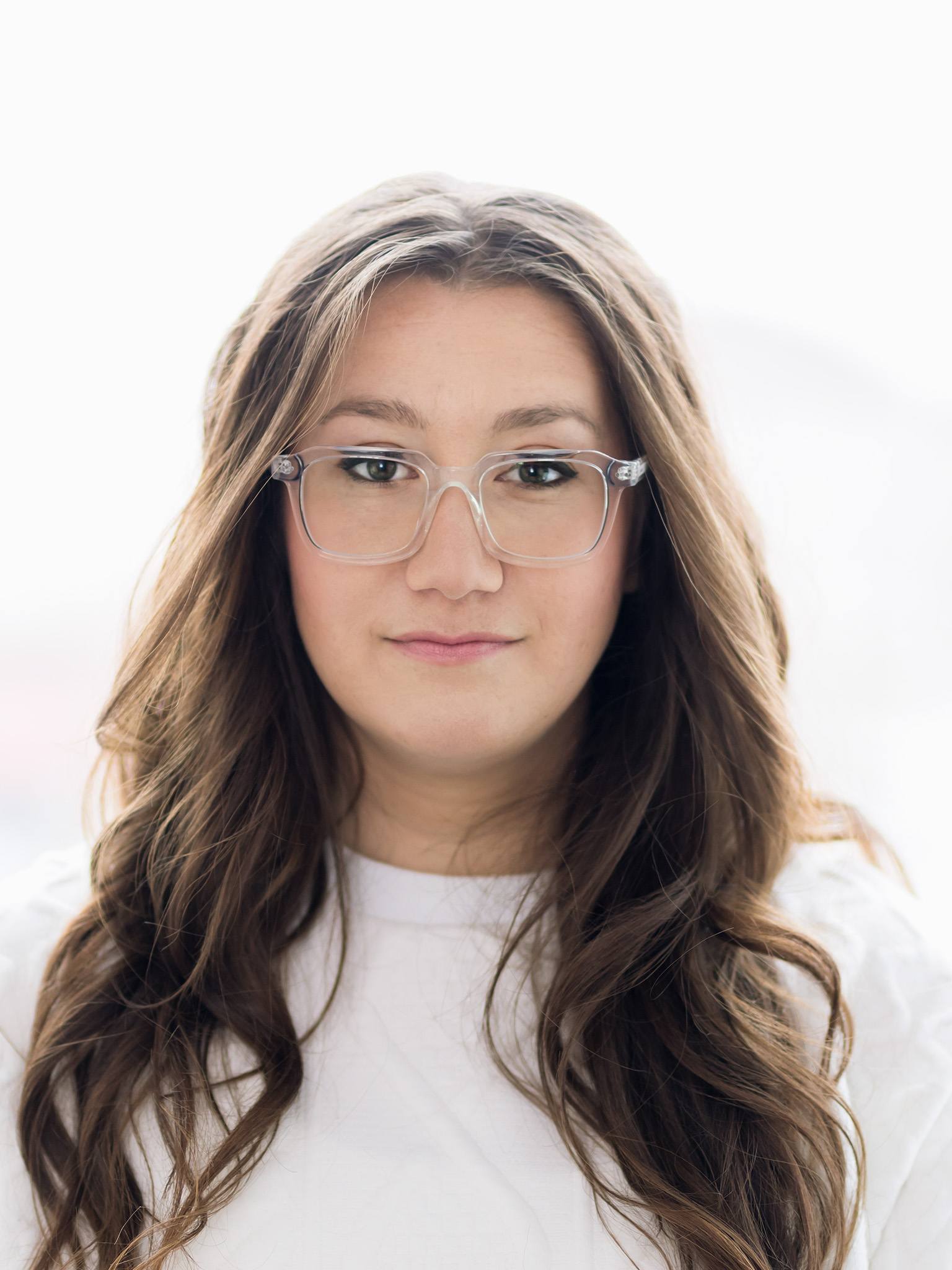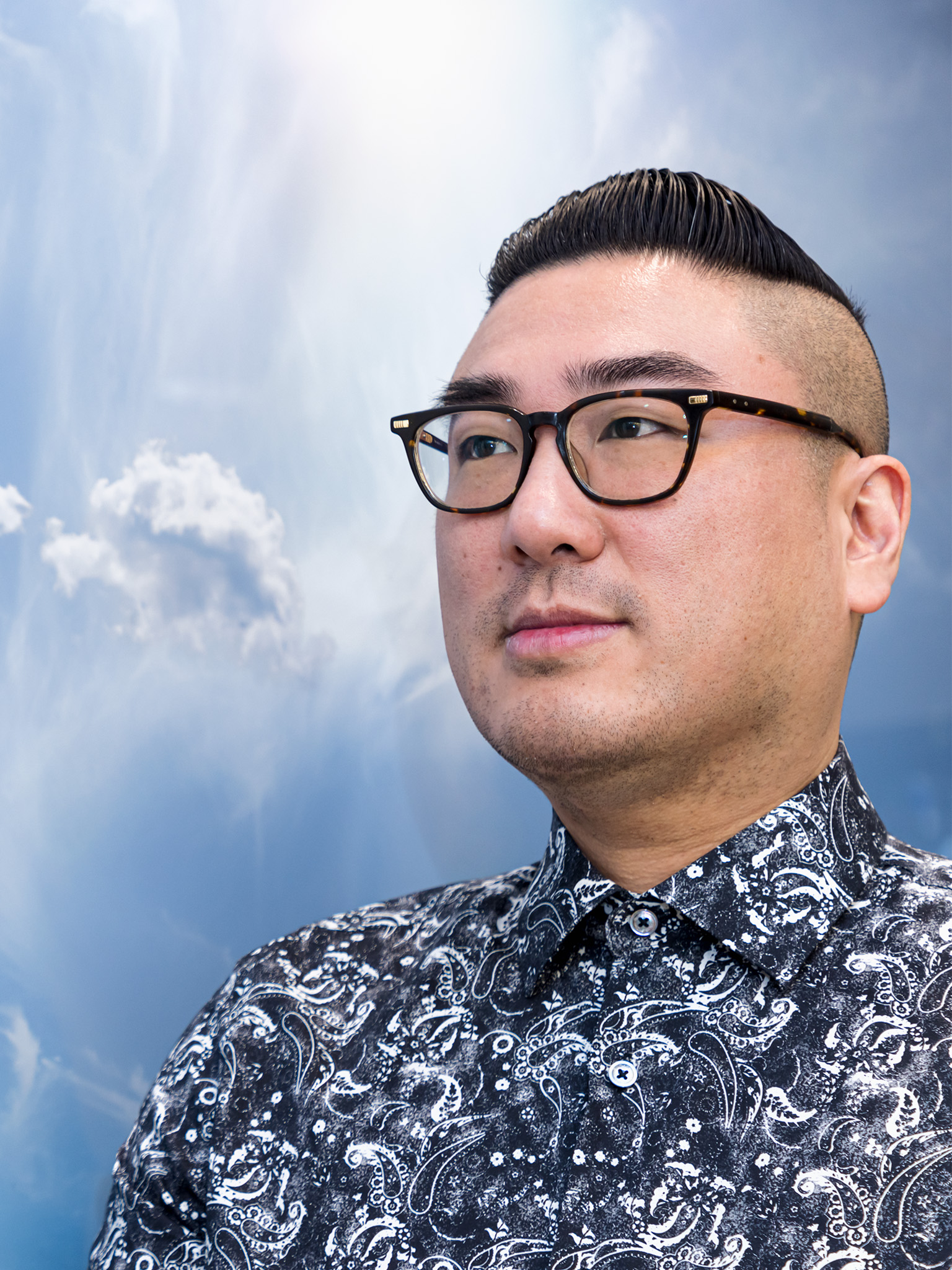Pillow Talk
by Rita Simonetta (BA ’99)
photography by Chris Robinson
After Julia Glowinski (MSW ’09) had her second child, neither baby nor mom were getting enough rest. “We had struggles with my baby not sleeping, and I noticed the toll it was taking on me,” Glowinski says.

The experience sparked an interest in sleep research, a growing field touching on everything from disease control to mental health.
Upon completing her Master of Social Work from York University, Glowinski went on to become a certified infant and toddler sleep consultant. Then in 2018, she launched Glow Sleep Services, a clinic that helps parents and their kids develop healthy bedtime habits.
“These are kids who are up every half hour,” Glowinski says. “Some of them will wake up as soon as they are put down, so their parents end up holding them the entire night.”
It’s a scenario that results in extreme fatigue, an issue that’s becoming increasingly common.

More than ever before, Canadians are struggling when it comes to both sleep quantity and quality. According to a 2022 Statistics Canada report, 25 per cent of adults report trouble going to sleep or staying asleep the majority of the time.
The Public Health Agency of Canada recommends seven to nine hours of sleep for adults aged 18 to 64, and seven to eight hours for adults aged 65 and older.
Poor sleeping habits add up to serious consequences. Getting only five hours a night is associated with higher incidences of chronic diseases, according to a 2022 study published in PLOS Medicine.
Experts say that sleep debt – the accumulation of several days without enough sleep – is a problem without an easy fix.
According to a 2022 Statistics Canada report, 25 per cent of adults report trouble going to sleep or staying asleep the majority of the time
“You can’t bring back time,” says Anjali P. Patel (BSc ’21), who works as a sleep technician at MedSleep in Brampton. “The human body has a biological clock, a circadian rhythm, and the body has to be asleep at a certain time.”
It’s not just about how much you sleep but the quality of sleep, which refers to various factors, including falling asleep relatively quickly after going to bed, and sleeping without interruption.
Also essential is what researchers term sleep architecture – the sleep cycles necessary to achieve restorative effects. Short-changing on quality or quantity produces moodiness, irritability and stress.
Michael Mak, a sleep medicine specialist and psychiatrist at the Centre for Addiction and Mental Health (CAMH), notes that up to 80 per cent of people with mental health disorders can have sleeping issues, according to a CAMH-led study.
“When we examined the brain waves of participants, we noticed a disruption of sleep architecture,” Mak says. “And those with sleeping disturbances are at a higher risk of depression.”

Kenton Kroker, a historian and professor in York’s Health & Society Program, believes that the rise of sleep as a medical sub-speciality has changed the way doctors link sleeplessness and depression. “Sleep physicians used to think of insomnia as a separate health condition, or perhaps a symptom of depression,” says Kroker, author of The Sleep of Others, a book providing a history of scientific investigations into sleep and sleep-related problems. “With the deeper integration of sleep into medical practice,” he concludes, “many sleep specialists now tend to think of depression and insomnia as co-morbidities.”
Improving productivity, regulating hormones and strengthening the immune system are some known benefits of sleep.
It’s also essential for memory retention, finds Annabelle Torsein (BA ’13), a York psychology major who has conducted research at the Sleep and Depression (SAD) laboratory at Toronto Metropolitan University. “Sleep stores and consolidates information that you learned throughout the day,” Torsein says.
Unsurprisingly, the pandemic heavily impacted our ability to sleep. Luigi Nicola Bragazzi, who teaches Applied Mathematics at York, co-authored a 2021 study that found sleeping disruptions reached 35.7 per cent. Those who had COVID-19 experienced the worst of it (74.8 per cent), Bragazzi found.
When we examined the brain waves of participants, we noticed a disruption of sleep architecture … and those with sleeping disturbances are at a higher risk of depression
Children’s ability to sleep was also deeply impacted by the pandemic.
“Their sleeping habits changed during COVID-19,” says Indra Narang, the director of Sleep Medicine at the Hospital for Sick Children (SickKids). “Children had interrupted sleep or difficulties falling asleep because of a lack of social contact and what was happening around them.”
According to the Public Health Agency of Canada, children ages 5 to 13 should sleep for nine to 11 hours, and those 14 to 17 years old should get eight to 10 hours. But the majority of Canadian children and teens are not meeting those levels. “Most children are sleep-deprived,” Narang says. And that’s not good for their health.
Sleep deprivation, if left unchecked, can lead to serious problems as a child develops into adulthood, adds Torsein, whose clinical psychology lab research focused on late adolescents.
She says that a good night’s sleep is crucial for the release of growth hormones: “And those with sleeping problems had less of them.”
Academic performance is also affected.
“Students are unable to take in information because they lack focus,” Torsein continues. “Some students fall asleep in class because they aren’t well rested.”
How to treat insomnia? Sometimes the solutions are simply a matter of tweaking some personal habits.
In Mak’s opinion, the most important tip is to say goodnight to screens – ideally two hours before bed. “The blue light emitted from screens,” he says, “tricks our bodies into thinking it’s daytime, hampering the production of melatonin.” He also suggests waking up every day at the same time, to set up the start of a new circadian cycle.
Glowinski endorses this; she says that practicing a specific set of rituals cues our bodies for sleep. Keeping your bedroom dark, and avoiding exposure to natural light, can also make you drowsy. “As light dims, a hormone called melatonin is released naturally and will help stimulate sleep,” Narang says. Why is this important? Because sleep is a balm. It cures, restores and keeps us happy and functioning as human beings. It’s a substantive public health issue, which is why we need to care. ■